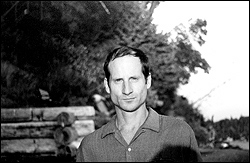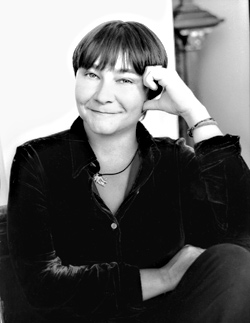In his smart, winning, and unpretentiously lyrical debut novel, Olympia writer Jim Lynch has crafted what may be a first: a page-turner with the sea as its most vivid character. Considering the quirky 4-foot-8 protagonist who narrates the book, that’s saying quite a bit. Speed-reading insomniac Miles O’Malley lives on the shores of Olympia’s Skookumchuck Bay, where he combs the tidal flats for marine specimens, quotes Rachel Carson, and pines after the self-destructive older girl next door. In other words, he’s your average undersized, oversexed 13-year-old, albeit one with an elderly psychic for a best friend and a propensity for finding oddities washed up by the tide. Faced with both high-end beachfront housing developments and his parents’ impending divorce, Miles’ summer goal is “to stop things from changing, to keep my bay, as I knew it, intact.”
But anyone who pays as much attention to the sea as Miles does knows it’s always in flux. Big changes lie ahead, not just for this soggy corner of Puget Sound but for Miles himself—starting with the giant squid he finds beached, possibly still breathing, on the mudflats near his rickety house. The discovery of this rare deep-sea dweller in the shallow South Sound sets off a media circus, with Miles cast as the boy-genius-cum-prophet at its heart. Exhausted, Miles ends up giving a quote he finds both true and nauseatingly banal: “Maybe the earth is trying to tell us something,” he muses to a TV reporter, and as New Agers, cultists, and miracle-cure seekers swirl around him, he tries in his own way to find out what that is.
The Highest Tide isn’t perfect; the relationship between Miles’ parents is underdrawn, and Florence, the crusty psychic, is a bit of local color who veers close to cliché. But the book comes alive whenever it gets near water, depicting a rich tidal world in lovely, precise prose powered by the poetry of fact. Miles himself is both unlikely and utterly believable, with a 13-year-old’s mixture of adult impulses and childlike clarity. As a budding scientist, he can’t understand why most grown-ups aren’t more curious about the world around them. By the end of the novel, neither can we.





